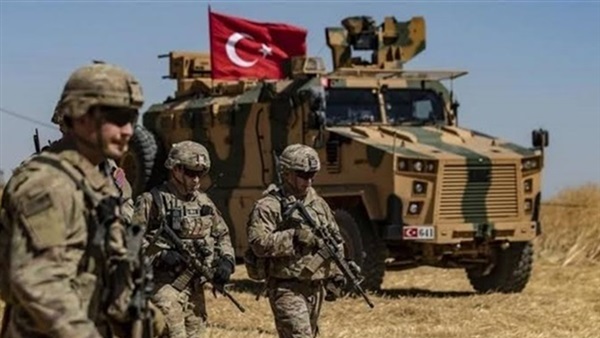Motives behind increased Turkish presence in Libya

There has been intensified Turkish action in Libya in recent days.
Four Turkish Air Force aircraft landed at al-Watiya Air Base in western Tripoli a few days ago.
The arrival of the four aircraft came against the background of attempts by Ankara to consolidate its military influence in the Libyan capital, in anticipation of new arrangements from current regional efforts.
Around 20 containers exited the base recently on the road to Tripoli. The containers got out of the base, only a few hours after the arrival of Turkish aircraft.
Heavy presence
Libyan press reports referred to the entry to al-Khums Naval Base in western Libya of a Turkish frigate, one day after the arrival of another Turkish frigate to the same base.
Ankara established a joint naval training centre in the city after agreeing with the outgoing government of Abdul Hamid Dbeibeh to enforce a controversial memorandum of military and security cooperation signed with the former Government of National Accord in 2019.
Commander of Turkish troops in Libya, Osman Itaj, also participated in late November in the graduation ceremony of a new batch of infantry, artillery and armoured forces who received military training at the hands of Turkish officers in Tripoli, in preparation for the formation of infantry and artillery brigades in coordination with Ankara.
Turkish military moves in Libya coincide with internal, regional and international developments.
The European Parliament issued in mid-November 2022, a set of recommendations on the Libyan file.
It considered the memorandum of understanding signed by the government of Mr Dbeibeh with Ankara, in early October 2022, which allows Turkey to explore oil and gas in the exclusive economic zones of Greece and Cyprus, to be illegal.
The parliament called for revoking the memo and asked all actors in the Libyan file to refrain from inflaming tensions through direct military intervention.
It also stressed the need for the withdrawal of mercenaries and foreign troops from Libya.
However, the latest moves by Ankara in Libya show that Turkey wants to increase its military presence in the North African country.
These moves aim to ensure the continuity of Turkey's role, regardless of whether the Dbeibeh government stays in place or not.
Mr Dbeibeh works to win over Tunisia to his side in his bid to strengthen his position in his struggle to stay in power.
Implications
Dbeibeh's visit to Tunisia and his meeting with President Kais Saied and Tunisian Prime Minister, Najla Bouden, reflected one of the dimensions of his moves to strengthen his position in the face of internal and external pressures.
Dbeibeh's visit to Tunisia, at the head of a large delegation from his government, which included Central Bank Governor, Sadiq Kabir, Economy Minister, Mohamed al-Haweej, Finance Minister, Khaled al-Mabrouk, and Minister-Designate of the Interior, Emad Trabelsi, came after a period of coolness that overshadowed relations between his government, on one hand, and Tunisia, on the other.
This coolness came against the background of Dbeibeh's anger at relative rapprochement between Tunisia and the government of Fathi Bashagha.
This rapprochement is supported by the Libyan House of Representatives.





